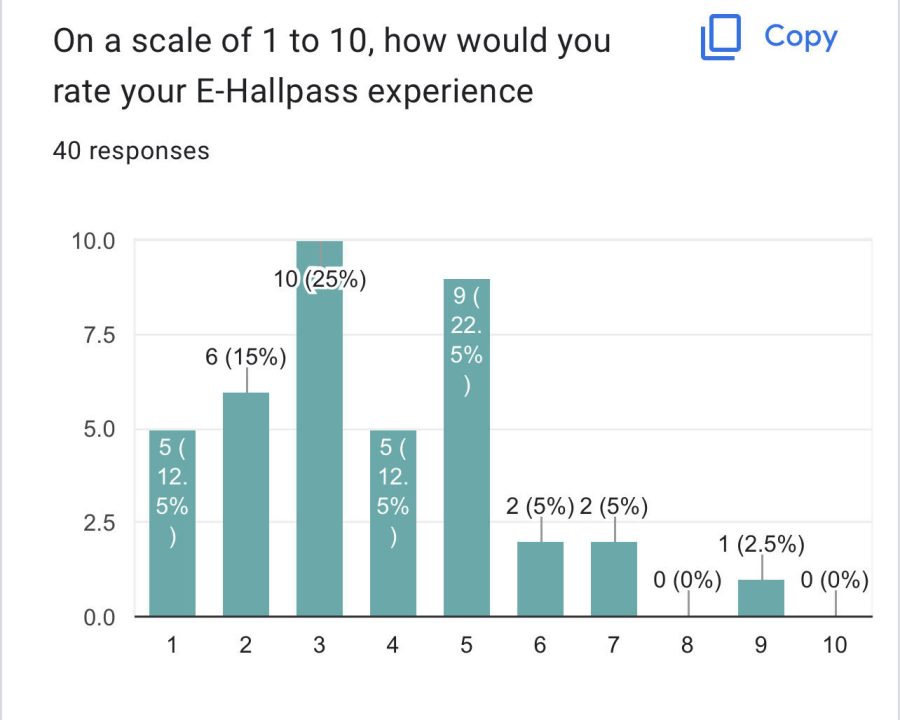Eww-Hallpass
Photo courtesy of Luke Yates
E-Hallpass, an online hall pass system, debuted at the start of the second quarter. The system was introduced to curb misuse of bathrooms and class cutting but has only added stress and system complications leading to different problems.
“E-Hallpass is supposed to be more effective, but in reality, it slows down the process of going to the bathroom,” said senior Andrea McCoy. “I end up waiting to use the bathroom at home or during lunch which isn’t very pleasant.”
Proponents of E-Hallpass argue that it is successfully curbing hallway roaming. In a survey of 40 students, 65% said that they are less likely to leave their classrooms because of E-Hallpass. However, if the true intention is to make students think responsibly, then a system built on annoyance and inconvenience accomplishes the opposite. Students are not being reformed, they are being silenced.
Students overwhelmingly harbor negative views towards E-Hallpass, with over 60% of students surveyed giving it below a five out of ten rating. But they are not the only ones with gripes about E-Hallpass. Teacher Mariah Eisman claims that the system contradicts the standards for technology use laid out by FCPS at the beginning of the school year.
“[FCPS’] own policy states that devices are not supposed to be used unless it’s for instructional purposes or medical need,” said Eisman. “Students now need to use the very devices they are not supposed to be using to create a pass. The two policies contradict each other.”
Eisman also lamented how E-Hallpass was introduced to teachers, saying that teachers did not have enough time to train themselves how to use the system properly.
“Teachers are good at figuring things out, but we need the time to do so,” explained Eisman.
According to Eisman, teachers were assured that E-Hallpass would not interrupt instruction, though both Eisman and a sizable 85% of surveyed students believe that the pass system works slower than the previous sign-out sheet system. Because of the tedious process of requesting a pass, some students feel that the E-Hallpass system unfairly punishes people who weren’t using the sign-out sheet irresponsibly in the first place.
“I find it a horrible way to regulate ins-and-outs,” said senior Curtis Ghannam. “It just feels like another digital punishment for so many students who didn’t do anything wrong.”
While the E-Hallpass system may keep students more accountable, the system is so inconvenient and inefficient that it also discourages students who already were acting appropriately from leaving their classes. Perhaps the system will continue to be optimized and improved over time. Even so, every student should be able to meet with their teachers during Learning Seminar, use the bathroom, visit the library, or just go to a water fountain without inputting that information into a totalitarian online database. As it stands now, E-Hallpass is turning into just another way to track and punish students.






